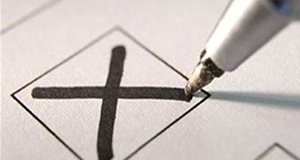
Graham Fox | March 21, 2013
During the 2011 federal elections, automated calls of unknown origin were placed to certain voters in certain constituencies with an apparent aim to mislead, annoy or otherwise interfere with their vote. Since they were uncovered by the Ottawa Citizen a little over a year ago, these events have understandably generated a great deal of public outrage. They go to the very heart of the conduct of federal elections in Canada and the integrity of our democracy, and they require a robust policy response from Parliament.
But if all parliamentarians do is respond narrowly to the specifics of what occurred in the spring of 2011, they will miss an important opportunity to modernize how we regulate and monitor all communications between political parties and voters – not just the illegitimate and potentially illegal ones.
In collaboration with Elections Canada, the Institute for Research on Public Policy convened a round table of experts last December to consider some of the questions that have been raised by what is now known as the “robocalls scandal.” There is no question that too little is known by the regulators and the public about who communicates with voters, on whose behalf and with what purpose. Moreover, too few records are kept after elections to ensure there is an electronic paper trail to follow when issues arise regarding potentially improper behaviour by parties or individuals.
But any reform should also address critical issues that arise from even legitimate communications with electors with regard to transparency, data management and privacy protection. Political parties know a lot more about us than was the case even just a few years ago, and it is time that the regulatory regime catches up with current practices.
With regard to illegitimate communications with electors, such as those recently uncovered in Guelph and elsewhere, there is no question that more information needs to be collected, preserved and made available to regulators. Parliament should consider, for instance, compelling political parties to disclose their contractual relationships with telecommunications firms, keep a record of the uses of those services, and perhaps even include the name of the individual who authorized its use as well as the script that was used. Parliament could also consider whether those records should be included in the standard postelection filings by parties. Similarly, Elections Canada should have the authority to compel the production of such information when allegations of wrongdoing surface. Finally, reform proposals should include a review of existing penalties to ensure they reflect the severity of the offence. For instance, should the simple act of impersonating an elections official constitute an offence at the federal level, as Ontario has recently done?
Even when it comes to the ways in which we want political parties to communicate with voters, the gap between practices and regulatory oversight is woefully wide. As a result of technological advancements and the availability of data, political parties collect and combine an increasing amount of information about voters. Most citizens would be surprised to learn that there is virtually no enforced protection of that data and no real recourse if there were ever a breach. That said, in this case, one size definitely does not fit all. Political parties play a unique role in our democracy, and rather than treating them like other entities engaged in telemarketing, privacy protection and data management regulations have to be tailored to that role.
So yes, we have to react to the robo-calls scandal. And yes, we have to look beyond it. But in so doing, let’s take care to define accurately and precisely what it is we are trying to fix, and test reform proposals against that definition.
It would be too easy to overreact to what has been uncovered. For instance, calls for an outright ban on political parties’ use of automated calls miss the point. For starters, those who want to thwart the system will simply move on to other technologies. And all the while, parties are discouraged from using a cost-effective means to communicate with voters. At issue is not the technology itself, but the nature of the communication. The focus of reform must be on what is communicated, and by whom, and not the message delivery mechanism.
Moreover, parliamentarians should make proactive measures a priority. They are likely to have a bigger impact on the behaviour of political parties than will reactive measures, and they will prove more useful when having to react to offences after the fact. We also have to ensure that those who regulate the activities of political parties learn as much about voter contact techniques and emerging technologies as the parties do. Finally, Parliamentarians must ensure that the reforms that are proposed do not unduly restrict the ability of parties to engage electors. First and foremost, we want parties to contact electors; new regulations should not get in the way of that.
In sum, something clearly has to be done to better regulate such communications. The facts show it, and public opinion supports it. Parliament’s challenge is to articulate a response that is appropriate, measured, and forward-looking. With the next election only two years away, we’ll soon see whether Parliament has the foresight to act.
Graham Fox is president of the Institute for Research on Public Policy (irpp.org). The article draws from a recent report on issues arising from improper telecommunications with electors, but the views expressed are his own.
